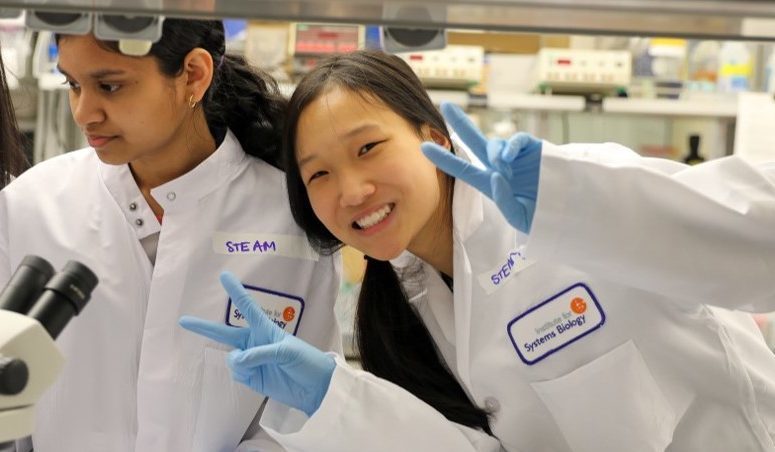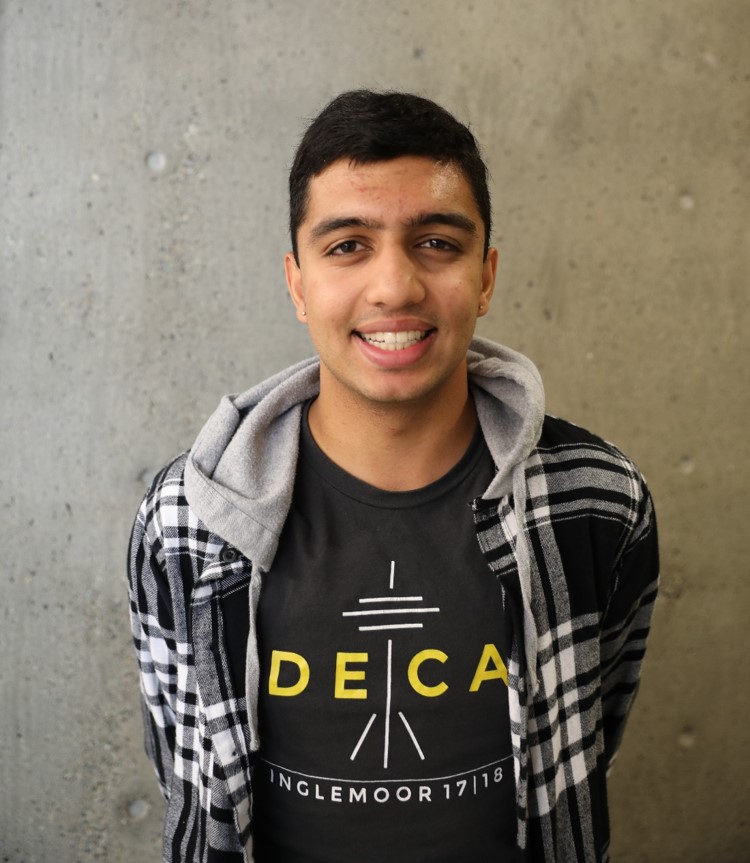STEAM Towards a Healthier World

Amogh Pande
Inglemoor HS, WA
Senior (2019-2020)
 Career Goals:
Career Goals:
Currently, I’m interested in pursuing a joint MD/MBA degree in order to go into healthcare management or to become an orthopedic surgeon. I’ve always enjoyed both business and medicine in school, which is why a lot of my extracurriculars (i.e. HOSA and FBLA) align with those two key fields, so finding an intersection between the two would be amazing, and I believe that the current healthcare model could undergo many innovations to become more efficient and save more lives (such as improving interoperability and introducing P4 medicine). As an athlete who’s been injured multiple times, I’ve also always been interested in orthopedic surgery and sports medicine.
One day I'd like to run for political office, with the intent of focusing on promoting wellness and a clean environment for all (whether that pertains to climate change or providing ample resources for the development of children). In the end, my main focus for my aspirations is to help aid the communities that have developed (and still are developing) me into the person I am.
What did you learn from this course?
The most interesting thing that I learned in this course is the new wave of medicine - P4 medicine (Predictive, Preventive, Personalized and Participatory). I’ve only thought about medicine in the traditional way before, so learning about how there’s a new model in medicine that can help patients maintain wellness and avoid diseases, such as diabetes and cancer, is really amazing to me. Coming from a family with numerous doctors, this entire shift in thinking that could be introduced to our healthcare systems really resonated with me, and I'd like to conduct future research connected to P4 medicine in some way. Furthermore, learning from the numerous guest speakers about topics ranging from the gut microbiome to healthcare economics and entrepreneurship has also been really interesting.
What advice do you have for future Ambassadors?
I think the most important thing is to have an open mind and be ready to try new things because that’s how you’ll discover what you’re really passionate about. This applies not only to STEAM but also to your high school years and your later life as well. Always take some key notes from the speakers - you want to be paying attention to them, but it’s also helpful to jot a few notes down so you can ask more insightful questions.
Also, remember to connect with your fellow peers and to have fun! That's what'll make the experience as meaningful as possible and engaging.
– Showcase Project –
"Faces of Cancer"
Who/What inspired this project?
I am the Chief Marketing Officer of a student-led nonprofit called Washington Student Cancer Awareness Association (WASCAA). Our goal is to help raise funds for underprivileged individuals with cancer in our communities, bring more awareness to its impacts, and aid research. After guest speaker Marne Anderson, a colon cancer survivor, came and spoke to us about her experience, I knew that I wanted my STEAM project to overlap with WASCAA, inspiring me to create this project.

Click to read the complete "Faces of Cancer" editorial (pdf).
How does your project communicate the relationship between the environment and health?
My project analyzes the relationship between one’s social and emotional environment and their health by sharing short stories of individuals who were either diagnosed with cancer or had a close friend or family member diagnosed with cancer. The lessons, insight, and advice these people share with us communicate that it’s not just our physical environment that affects our health, but our mental and social environment as well.
Who is your target audience?
The stories that I write about in my project can be read by the general public, however my specific target audiences are people currently in the healthcare/research field, and students my age who are planning careers in medicine and science. This is for those who are interested in understanding how we can better treat cancer patients not only from a medical standpoint, but from a social, emotional, and psychological standpoint.
I believe that our current healthcare system, with its intense focus on insurance, finances, and liabilities, has led to some dehumanization of the entire medical process. In the end, patients are human beings with complex emotions and mindsets, and in order for treatments to reach their full potential, we have to understand the social, emotional, and psychological implications of diseases such as cancer. As such, I believe that this is the audience that will be impacted the most upon reading my article and seeing how cancer's social impact operates similarly to systems biology, as one person having cancer in a community can lead to numerous people in the community being impacted through their social network and connections.
As an Ambassador, how do you plan to share your message with your target audience?
I plan on publishing this article on the WASCAA website and multiple local newspapers.


